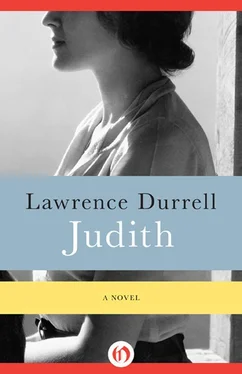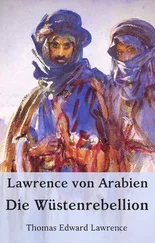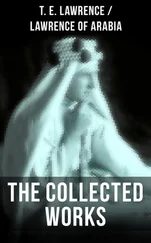“He is second in command to Aaron, in charge of defence. He is if anything rather over-confident about our chances of survival — I suppose he has to be, to keep morale high. He has been hoping you would come back, you know; but there! It’s none of my business. I think he would like to marry you some day.”
“What chance would we have?” she said slowly, “with this war hanging over us.”
Peterson flicked her cigarette away. “It will not last forever,” she said. “There will be some pretty sharp birth pangs and presto… Israel. Once we have shown our will to survive, the nations of the world will decide to honour the mandate they have given us. After that there will be… I hardly dare utter the word. I’m too superstitious. I’ll spell it. P-e-a-c-e.”
“I’d love to believe you.”
“You must. When that comes you’ll find a different David.”
“Peace!” said Grete, reflecting ironically. Once on the main road, they were swept into a long string of convoys heading for the coast, throwing out a great white plume of dust as they roared along. Lorries crowded with troops of all kinds, sappers, signallers, transport corps, pioneers…
They did not find unencumbered roads again until they climbed the looping road through Nazareth and began to taste once more the fresh hill air. The mountain fortresses — the so-called Mactaggart forts — were still manned by the British troops — and this was some sort of consolation, since they knew the road would be open to Ras Shamir. So they finally came to the last twist in the mountain road and were able to look down across the misty violet sweep of the valley which by now had come to mean so much to Grete. As they neared the encampment they saw what changes were taking place, and that a new kind of purposefulness reigned. Tractors were throwing up banks of earth which looked suspiciously like tactical outworks; the perimeter had been triple-wired, and the whole large circle had been condensed into a makeshift fortress. Every hundred yards or so there was a bunker which suggested a machine gun emplacement. Who could tell whether they were full or empty?
“It looks quite transformed,” said Grete.
“It’s mostly bluff, alas,” said Peterson quietly. “But it might serve. Aaron has gone off to see the British today.”
They entered the perimeter at last, and rolled slowly across the grass among the trees; Grete found herself greeting and being greeted by people she had almost forgotten were her friends. “Shalom, shalom”… the words echoed on the sunny air.
Peterson grinned and said, “I’ll tell the committee. Meanwhile, by a bit of luck your old shack is empty and you can settle in there; and here is someone to carry your bag.”
David’s son stood smiling under a tree; in that short time he had grown taller. To her surprise he came shyly forward and kissed her on the cheek.
“I have been thinking of you,” said Grete. “You’ve grown.”
The boy flushed and said:
“We have spoken much about you here; the children asked always when you were coming back.”
“They did?” cried Grete in genuine surprise.
He nodded and took up her bag; Peterson let in the clutch and moved off in the direction of the clinic. Grete followed the boy to her little hut. It was still there, primitive and shabby.
“There is a letter for you,” said the boy.
This was another surprise. The letter bore an Indian stamp and a sender’s superscription bearing Lawton’s name; so even he had the gift of prophecy! How had he guessed that she would return to Ras Shamir?
David’s son stood looking at her. He said rather solemnly, “My father has asked my permission to love you and I have given it.”
Grete looked at him musingly and then stroked his hair.
“I know you will make us happy,” he said quietly and, patting her wrist with a small protective gesture, he turned and was gone.
Grete sat down on the bed and opened Lawton’s letter, smiling to herself. Then she read aloud a phrase from it. “You know that whatever happens I shall always be here; and if ever you change your mind…
24. A Gift for Ras Shamir
The two men gazed at each other with a kind of grim respect as they exchanged a perfunctory handshake, the tall grizzled colonel and Aaron Stein. Macdonald, the regular, was seated at his primitive desk in the operations room of Fort B — the Mactaggart fort which dominated the pass leading to Ras Shamir and enabled him to keep a tenuous control on the border. Aaron’s eye took in the grey hair, the service medals and the missing thumb which made the operation of lighting a pipe a somewhat lengthy one. He himself puffed at a cigarette.
“I asked you to come and see me,” said Macdonald with the faintest tinge of a Scots burr in his voice, “because… well, because we are pulling out.”
“And we are going to be attacked.”
“Exactly. I see you’ve been fixing up a perimeter down there and I wondered what defences, if any, you had; also what your intelligence was like. Naturally you need not answer any questions, as my duty would be to disarm you. I shall presume you have no arms, eh?”
He got up and walked once round the room before reseating himself, as a dog settles itself down in a basket; it was clear that he was uncomfortable.
“When do you pull out?” asked Aaron cautiously.
Macdonald hesitated. “Day after tomorrow at four ack emma; from then on the road is wide open to be cut, and as for you…
He crossed to the wall map of the area, which depicted the long appendix of the valley with its two converging gorges through which the river had carved a way. Macdonald stabbed at Ras Shamir with his pipe-stem.
“You are an obvious target — and if you cave in, the whole valley goes. Now I can tell you privately that Daud the Prince is lying back here ready for a push. He’s well armed and trained by us. But he will have to come through the pass with the river. No other way. Have you any chance of sealing the pass?”
Aaron shook his head. “I can’t spare the men or the rifles.”
“Rifles!” said Macdonald with a commiserating air. “What the devil do you propose to do in such a case?”
Aaron took up the pencil and indicated the dotted settlements along the two scarps.
“The kibbutzim will reinforce me at a signal but… it will be mostly men with pitchforks, thanks to your policy of forbidding us arms.”
Macdonald made another circle of the room and came back to rest once more at his desk.
“Look,” he said at last, after carefully clearing his throat. “You must get the women and children away. I could provide you with transport. What do you say?”
“No,” said Aaron stubbornly. “We stay.”
“Well, I can but make the offer; if you refuse it, that is your affair. But I trust you will let me at least send the trucks down to the kibbutz. Your committee may think differently.”
“The decision is not mine only; everyone is agreed.”
Macdonald scratched his head. “Well I see that you are perhaps a little slow to take my point. It’s a pity when you are so short of materials and faced with a possible attack.”
He rose and took Aaron’s arm. “Come with me and have a look at the transport,” he said. “I have to do my morning inspection in any case.”
Aaron looked extremely surprised at this unheard-of departure from military practice, but something in the Scotsman’s quizzical glance intrigued him, and he followed him out into the compound where his transport lay, drawn up in rows.
“You see,” said Macdonald, “I’ve told HQ that I’m setting my MT at your disposal today; it’s up to you to reject the offer and send it back to me. In that way my conscience will be clear.”
Читать дальше












